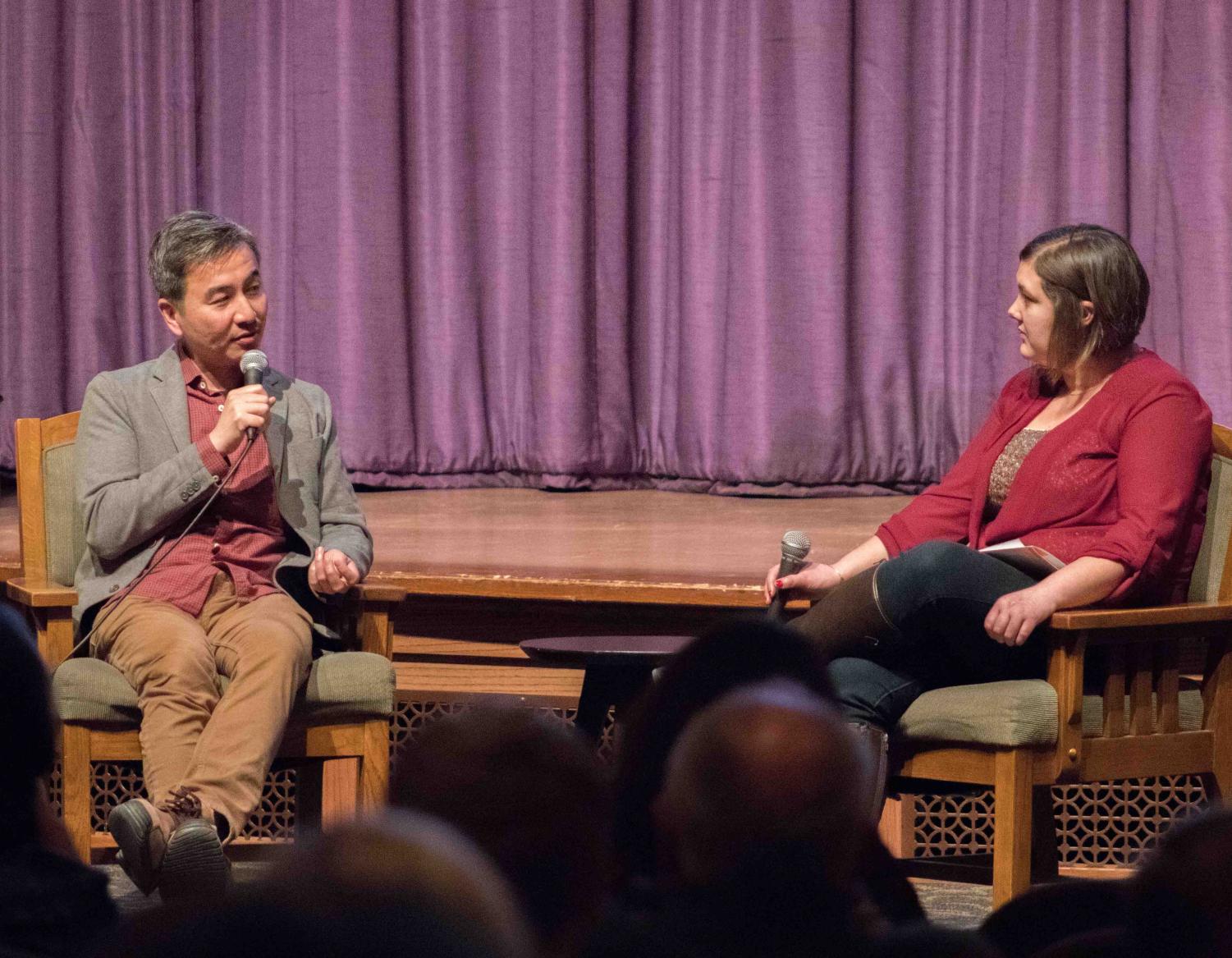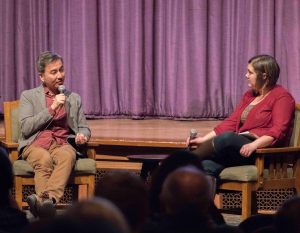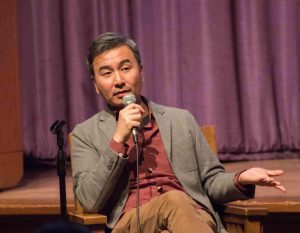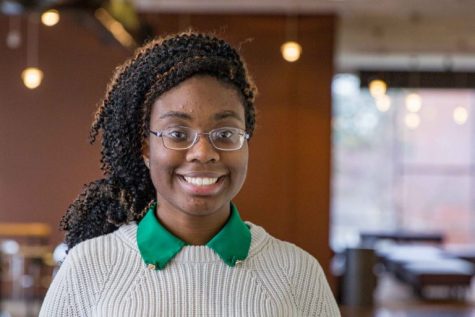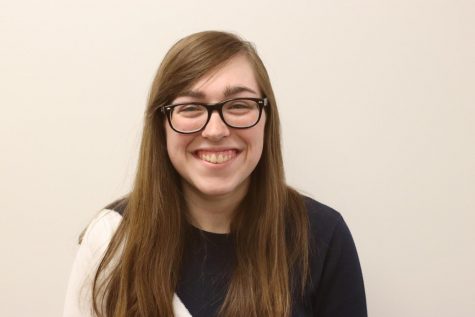Chiang shows documentary in Lang
Feb 7, 2019
Not many have the unique opportunity of watching a documentary with the filmmaker present, but that’s just what UNI students, faculty and community members did on Monday, Feb. 4, in Lang Auditorium.
Independent documentarian and producer S. Leo Chiang was invited to UNI through the William and Stephanie Clohesy Documentary Film Series. Chiang was born in Taiwan and is now based in San Francisco. His work “A Village Called Versailles” landed an Emmy award nomination. His most recent documentary, “Out Run,” which was screened on Monday, gained him a Best Cinematography award at the Los Angeles Asian Pacific Film Festival.
Chiang spent the first three days of the week on UNI’s campus hosting film screenings, visiting classrooms and meeting with UNI students. He also met with digital media students from Hawkeye Community College. In addition to presenting “Out Run” and “A Village Called Versailles,” he showed his newest work-in-progress film, “Ma Liang’s Time Machine.”
“Out Run” follows the world’s first — and at the time, only — LGBT political party. In a character-driven portrayal, Chiang’s film follows Bemz Benedito closely as she and her fellow Ladlad party members attempt to make history in the 2010 Philippine election. Benedito aspires to be the first transgender woman in the Philippine Congress. The film follows her, her trans campaign team and other supporters of their movement from their campaign to the day after the election. The film ends with interviews conducted three years after.
Sophomore political communication major Elle Boeding attended the screening of “Out Run” and thought the film was very impressive.
“I thought it was very inspirational,” Boeding said. “I liked how they followed them through.”
Following the presentation of the film, there was a question-and-answer session with Chiang. Audience members asked him clarifying questions about his work on “Out Run.” Chiang was able to discuss a scene in the documentary with misused gender pronouns. A father used “he/him/his” pronouns for his transgender male-to-female daughter.
“Just to be fair, in English, they do kind of get their pronouns confused,” Chiang said. “A lot of it is in Tagalog there is no gender in the pronouns.So I don’t know if people did that maliciously, or carelessly or something that they’re not used to doing.”
Chiang also had updates on the situations of all the main people portrayed in the film and the current political structure. In the film, Benedito and the Ladlad party lost the 2010 election, but in 2016, the Philippines did elect the first transgender woman to congress with Geraldine Roman.
Chiang was able to give a broader context than what could be included in the film. During the time of Ladlad’s election, the U.S. Supreme Court upheld same-sex marriage. The LGBT community in the Philippines was disappointed in how Ladlad was refusing to campaign on the topic and played it safe instead.
“We were afraid of creating controversy. It was a mistake,” said Raymond Alikpala in the documentary after the lost election in which he was a nominee. “As Ladlad’s leadership, we let Filipinos down.”
Chiang echoed the sentiments of Alikpala, saying he thought with the U.S. in mind, they played it too safe.
The film has been well-received and shown to audiences across Southeast Asia, the U.S. and other parts of the world, according to Chiang. His favorite festival where the film has been shown was in Myanmar because it is so close to the Philippines.
“I really enjoyed it,” said Leah Vierkandt, a senior digital media production major. “It was obviously something different. I’ve never seen something like it before.”
“I want the students to see how similar the struggle is between a community that’s seemingly so far away and so foreign with the struggle that we all know in the U.S.” Chiang said. “And I’m sure there’s similar struggles for the queer community here in Iowa. And also, other underrepresented communities, not just the LGBT communi ties.
“[…] we all want to be treated fairly, we all want to be an equal partner in the society that we’re a part of. And we all want to have love, and have the acceptance of our family,” Chiang continued. “I would love folks to see that, that would be a really great message to take away.”



